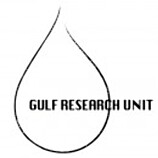
Archive: Gulf Research Blog
Blog articles from 2009 to 2012. The Gulf Research Unit is research programme based at the University of Oslo.
Iran, Iraq, and energy
Denne artikkelen er over ti år gammel og kan inneholde utdatert informasjon.
By: Annette Wolden
There are many issues that have to be resolved in today’s Iraq. First and foremost, in order to get the country back on track, the energy sector needs to be back on track. A large contributor to the rebuilding of the sector is neighboring country Iran. Iran’s energy exports to Iraq in 2009 reached $1 billion, of which $400 million accounted for electricity exports and $300 million to petroleum products. Iran has also been involved in rebuilding Iraq’s energy infrastructure. In 2007 Tehran signed a $150 million contract to build a 300-megawatt power plant in Baghdad, and in 2008 it agreed to build a 400-megawatt electricity line between Abadan and al-Harasa.
Prior to the fall of Saddam, Iran and Iraq had competed against each other over regional hegemony for decades and had been engaged in a war against each other. The fact that Iran is now a large investor in Iraq is a matter of huge controversy. Politically, a close relationship with Iran, is a sensitive issue in Iraq. Moving closer to Iran is perceived by many as a sign of weakness and of Iran trying to control Iraqi affairs. In addition, the changing quality of Iran-Iraq relations has led the region’s political leaders to express their concern of the development of a “Shia Crescent”. A term that refers to a new trend of Shia dominance stretching from Beirut to Tehran, and the fear that this development will cut through the Sunni-dominated Middle East. A closer relationship between Iran and Iraq would enforce this “Shia grip” over the region.
It is difficult to stipulate Iran’s true intensions for investing heavily in Iraq, but from Baghdad’s point of view, Tehran makes out for both a security threat and a much needed investor. Since after the invasion in 2003 there has been talk of establishing a closer cooperation between the two nations’ energy sectors. The Basra-Abadan pipeline is one example, first proposed in 2005. If cooperation between Iran and Iraq’s oil sectors were to become a reality, the countries would obtain a unique place in the international oil market. By committing to cooperate, they would hold a larger marked share between them, enabling them to dictate output levels to a greater extent than what is possible now. This is also true for OPEC negotiations.
By deciding to strengthen the ties to Iran, Iraq will experience protests from within. Especially from the Sunni communities wanting to avoid Shia control. To cooperate will also mean risking appearing as a puppet-state under Iranian control. However, the close energy tie-up between the two nations could also serve as a buffer to any external political pressure on Iraq.
Cooperation demands a large degree of openness and it is not clear whether Iran is prepared to make that kind of commitment towards Iraq, or if Iran is hoping to be the stronger part in the relationship, and thereby dictate the premises.
Read more:
http://www.mojnews.com/en/Miscellaneous/ViewContents.aspx?Contractcms_Contents_I_News&r=506638
http://www.nitc.co.ir/iran-daily/1386/2926/html/economy.htm
http://www.msnbc.msn.com/id/23421798/ns/world_news-mideast/n_africa/






